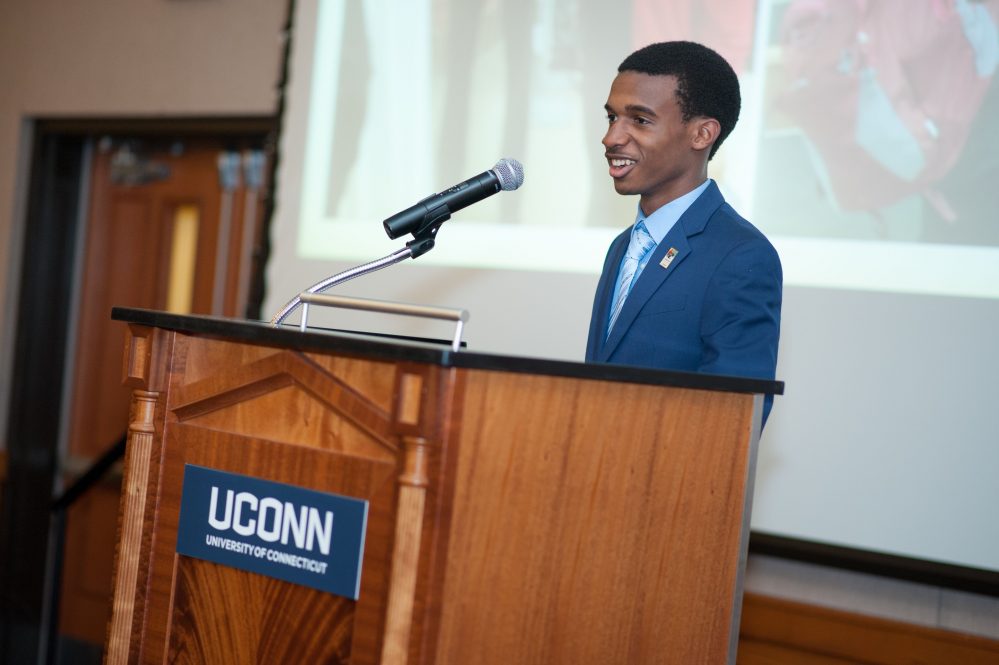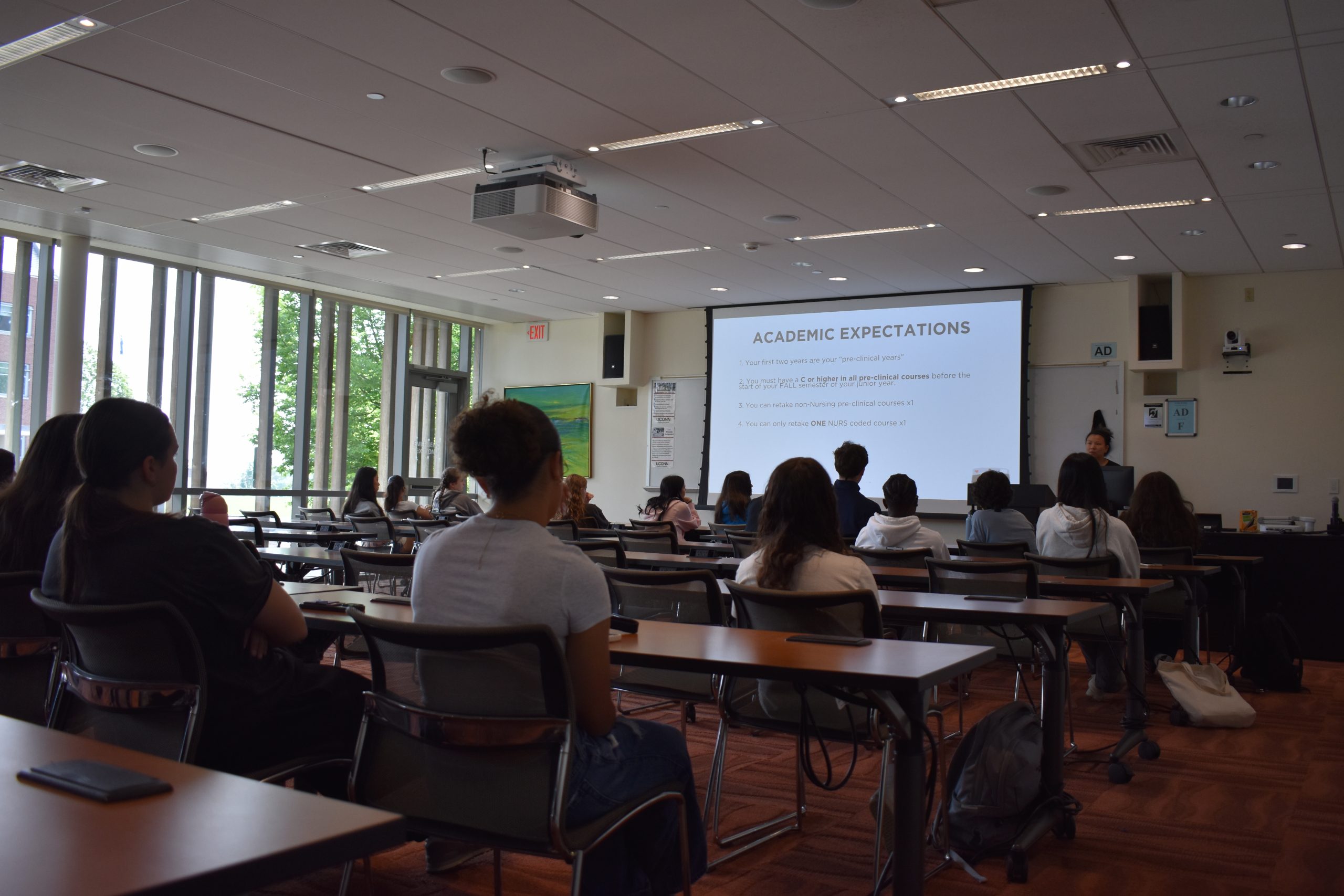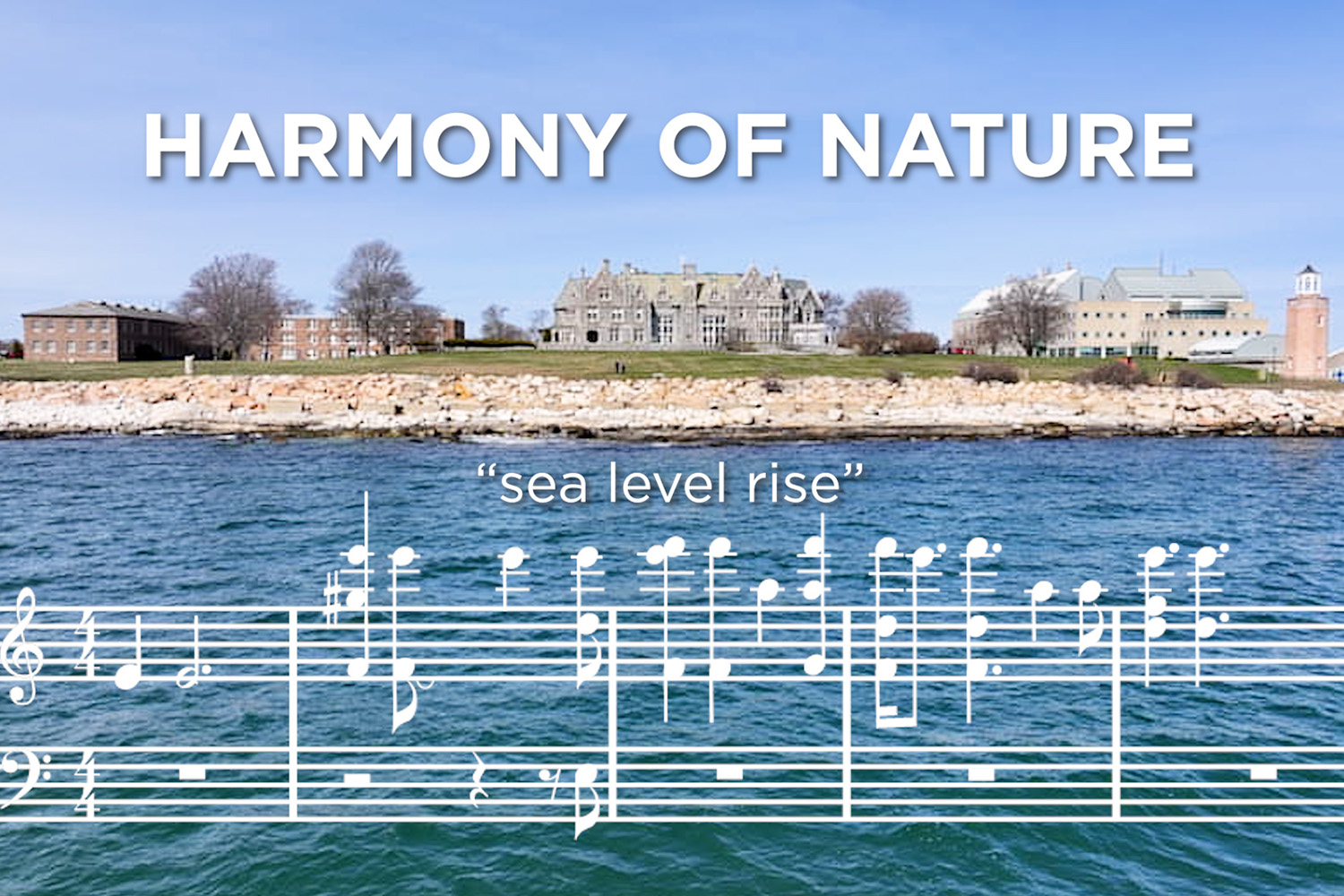UConn undergraduate Damani Douglas ’22 (CLAS) has been named as one of 50 members of the inaugural class of Social Justice Fellows by the Martin Luther King Memorial Foundation.
The leaders from around the country include undergraduate and graduate college students and recent graduates starting their professional career.
The fellows met virtually over the summer, with a curriculum centered on advocacy, community organizing and public policy in order to build a community of support with like-minded leaders. The group explored high-impact practices that move communities from consumers of a movement to activism and develop an understanding of leadership for long-term sustainable community change.
The program will continue for Douglas and the rest of the group through July 2022.
“We have meetings where we talk about various issues in social justice, but we also had other conversations where we are talking about different ways that we can individually have an impact in our communities and states,” says Douglas. “It’s a great way for us to learn from each other and we have some really terrific folks from a large-age range. There are people deep into their professional careers and other folks, like myself, who are still completing degrees.”
Douglas, a senior, is a political science and communications major at UConn and grew up in West Hartford, graduating from the Academy of Aerospace and Engineering in Hartford. He was born in Providence, R.I., and also lived in New Hampshire.
“There is a lot of learning from each other, a lot of community and a lot of opportunities for each of us individually to figure out both the way systems in the world, but then also an opportunity for us to connect and build a network that we will be able to use to promote social justice,” says Douglas.
The Fellows Program features four key components: a distinguished lecture series; a personal learning journey to focus on a key area of interest and practical application; a capstone project focused on building a movement for a current issue at the local, regional or national level; and a concluding program in Washington, D.C. for an in-person Congressional component focusing on social justice and public policy.
“With the goal of transforming protest to policy, the challenges of today require a new generation of bold leadership,” says Harry E. Johnson Sr., President and CEO of the Memorial Foundation. “We have found the very best young leaders who embody and will inspire others to follow Dr. King’s principles of democracy, justice, hope and love. We designed the Social Justice Fellows program to help the participants grow in their ability to pursue Dr. King’s vision of equality and we are thrilled about the potential of our first class of fellows.”
Douglas was the first-ever chief diversity officer of UConn’s Undergraduate Student Government last year. He will be the president of the UConn chapter of the NAACP this academic year.
“I do a lot of social justice work on campus, which has been made more interesting, a little bit easier, and a little bit harder because of COVID,” says Douglas. “COVID exposed some of the inequities when you start to talk about access.”
Douglas is planning a career in public policy in the future.
“I am not sure policy I am not sure whether that is going to be in the public sector directly in government administration or whether that will be mean law school or something along that track,” says Douglas. “Eventually I want to be in public service, elected office at some point – not right out of the gate, but not too far in the future.”
He has seen positive steps at UConn during his time working on social justice issues.
“I feel like folks are always generally looking to make spaces they are in better for everyone who is there,” says Douglas. “For example, UConn recently released a report about microaggressions on campus and some of the racial dynamics that are happening. One of the things that I really appreciated was the University’s response to its own report, which was – ‘we see these things, we are going to make a plan and figure out how to reduce some of these things that student and faculty are feeling.’ The University was really willing to work with folks who were affected and listened and talked collaboratively.
“I also found similarly beyond UConn, that when you feel folks that a group is hurting for a particular reason, the vast major of time you hear ‘how can we make things better’. You can’t just snap your fingers most of the time and make it happen, but people seem to be willing to continue the dialogue and say ‘if we can’t do this right now, what can we do until we get to that point?’”



